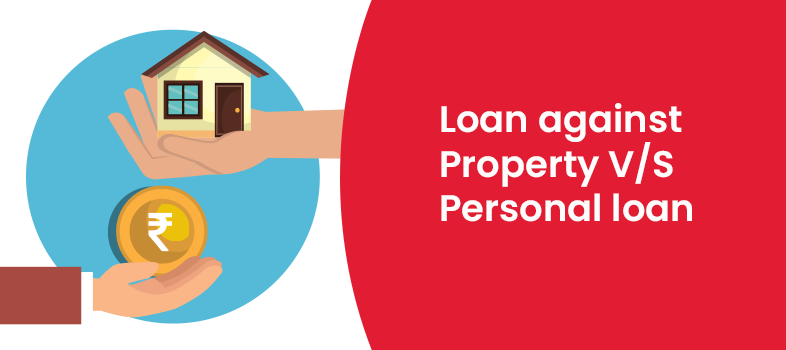Generally, we all go through situations where we need cash. So, we like to go to Banks or NBFCs to get cash money sanctioned. Here, the borrower has the two options, personal loan and loan against property which will be based on the on borrowers’ preferences.
What is Loan Against Property?
As the name reveals, a secure loan is lent in exchange for a security asset. A security asset is crucial to safeguard a personal loan until its repaid. It is considered the cheapest amongst other form of loans. You can freely use the instant money received for purposes like business expansion, home improvement, dream wedding, medical needs, shopping instinct, etc.
What is a Personal Loan?
A personal loan is an unsecure loan which the borrower puts up and does not require any collateral against the loan amount. Just like the loan against property, instant personal loan can be used for motives like wedding, education, travel, medical emergency and more.
Loan Against Property Vs Personal Loan.
Let’s draw a fair comparison between the two.
Once presented with two loan options, a thorough research on the pros and cons is imperative. Make a choice that saves you substantial money.
Loan Amount
Being secure, loan against property can ensure a higher sum of money. Atleast 70% of the property value is granted as the loan amount. If you have a larger requirement, then a loan against property can be a good idea.
And here, since a personal is unsecure, the loan amount is much lower. It is essentially based on your regular income and repayment capabilities.
Interest Rate
The rate of interest on a personal loan is much higher compared to loan against property. The low interest rates are attached to the low risks of loan against property. This is majorly because of the limited risk of default. The rate of interest on a loan against property fluctuates between 11% to 16%.
Whereas, the interest rate on a personal loan can be comparatively higher within a range of 15%-25%. The risk factors must be properly accounted for. The interest rate is obviously based on the borrower’s credit score, income, employment and placement.
Loan Tenure
In addition to the higher loan amount, a longer tenure comes handy with loan against property. The tenure can shoot upto 15 years. However, a longer tenure implies a long series of interest too.
Similarly, in a personal loan, the tenure generally can be within 5 years of timespan. It is recommended if you plan the close the loan beforehand.
Loan Processing
This is a significant factor for a borrower to base its decision, because a personal loan scores much higher. Under a personal loan, processing is much quicker. It gets instantly approved after an official go ahead. The income, credit score and repayment capacity of the borrower is majorly taken into account as a criterion.
Whereas, in a loan against property, the banks conduct a thorough study on the property under scanner. A study includes internal, legal and general checks on the property.
Credit Score
As we understand that a personal loan is unsecure, it comes with high interest rates and hence you build a higher credit score. However, in a loan against property, the lender has greater advantage of collateral and which is why the credit score dips low.
If tenure is longer in the loan against property than the credit score will be improved. But the point to remember is that continued repayments must be opted intelligently.
Which Is Better?
The type of loan to use depends on the urgency and amount of money at stake. If you’re looking for a loan to treat medical issues, then seek a personal loan. However, if you’re looking for recreational money, a loan against property works.

